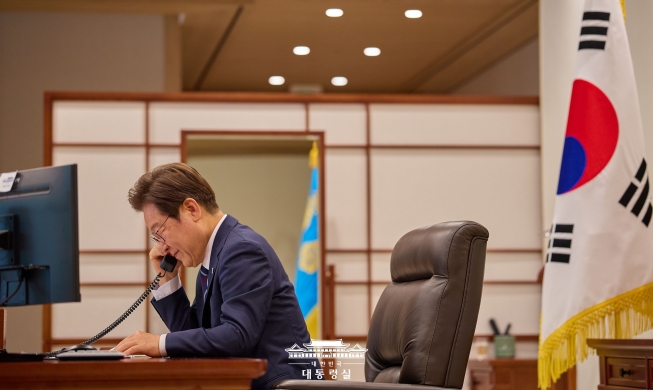
By Mark Peterson
Professor emeritus at Brigham Young University
We have seen in the last few months a revival of concern over Japan's abuse of women during World War II and the incumbent government's recalcitrance and denial of Japan's guilt in these war crimes. Now, the other side of Japan's wartime crimes is coming to the surface again: abusive forced labor.
One reason the forced labor issue has come to the front is recognition by UNESCO and its World Heritage Site listings of accepted sites that were not only those of Japan's industrialization but also locations of forced labor. The focus of the list is 23 locations of coal mines, iron, steel and shipbuilding, places where miners and workers were conscripted like soldiers in the army to support the Japanese war effort.
The situation has risen in national and international consciousness because on the heels of the UNESCO recognition in 2015, Korea released in 2017 a blockbuster movie on the subject called "Battleship Island."
Of the 23 sites celebrated in the UNESCO announcement, the most graphic photographs are of the island, which is not far from the coast of Nagasaki and looks like a large battleship. Called "Gunhamdo" in Korean and “Gunkanjima" in Japanese, the island has as its original name "Hashima" (End Island). The movie is not a documentary but a fantasy built on how Koreans (and Chinese, who are not in the movie) were conscripted and forced to work in underground coal mines deep beneath the island.
Japan doesn't have much in the way of mineral resources, no oil and limited coal. Thus this small island played an important role as a coal mine operated from 1887 to 1974, when the mine was closed and the island, once a residence for 5,000 people, became abandoned. Photographs of the island today show a ghost town with abandoned nine-story apartment buildings and other structures.
During the war, the miners were not only Japanese but Koreans and Chinese forced to work on the island. The movie depicts an innocent musician forced to move to the island to work under dangerous conditions to provide coal for Japan's war machine. He is a single father who takes his daughter with him on the pretense that he will work as a musician in Japan, but ends up on the island, virtually a prisoner. His daughter is pulled from him to live with the other women, mostly sex slaves at the island's "comfort station." The two issues go together — enslaved comfort women and forced labor of both men and women.
As the war effort for the Japanese turned from bad to worse, the government drafted younger and younger recruits for the army and more men for the mines and factories. Women were also drafted, and as seen in examining the comfort women issue, some were "tricked" into servitude, promised one thing but given another; promised a good job but forced to perform demeaning or dangerous work.
And where is Japan today on this forced labor issue? Like that of the comfort women, the Japanese government seems more concerned with its "image" and "hurting the image of the country" if it were to admit the reality of what was done.
This is genuinely a puzzle. A large number of Japanese today do indeed recognize that their ancestors committed war crimes. This shouldn't be a difficult thing. Germany admits the guilt of its ancestors who committed horrendous crimes during World War II. Americans admit war crimes against native peoples in bygone years. And a certain percentage of Japanese admit to the wrongdoings of their ancestors. But the party in power in Japan and those who choose to align themselves with the incumbent government have adopted the position of denialism, not wanting to hurt the image of the country.
The situation is a potential stumbling block to today's political alliances. Korea, Japan and the U.S. are working together to face China and North Korea, but the issue of World War II crimes threatens to crack the alliance. Korea has had to swallow its pride and back off from demands for full and complete apologies and compensation for war crimes. Japan uses the topic of political alliances to blow past any consideration of apology and compensation. And the U.S. is the "Rodney King" of the alliance, saying, "Can't we just get along?" And thus we limp along, not facing reality or the past and pretending that we can get along with a Japan that will not distance itself from but rather still "owns" its war crimes. Why does Japan refuse to disown its past war crimes? Why does it continue to embrace its history as if it made no mistakes when clearly World War II was its fault with all its concomitant war crimes?
At one level, Japan's position makes no sense. If it simply admitted the errors of its ancestors, the thing could be done with. Finished once and for all. Healing could take place. International relations and alliances could be normalized.
But instead of recognizing its past mistakes, the Japanese government has taken a position that revives memories of other past mistakes. Koreans are reminded anew of the memory of the Hideyoshi invasion of Korea in 1592, when as many as four million Koreans were slaughtered in one of the worst wars in world history. Koreans remember the treachery of Japan's colonization of Korea from 1910-1945 and the wounds and memories of those abusive years return to the fore. There was also the slaughter of innocent Koreans on the heels of the 1924 Kanto earthquake. And Koreans remember the statement of Japanese Prime Minister Yoshida Shigeru, an alleged war criminal of World War II who was not among the few war criminals punished for their crimes, but who joined the power elite that restored Japan after the war like many of the post-war leaders, their past crimes ignored. On the tragedy and loss of life in Korea caused by the 1950-53 Korean War, he called the conflict "a gift from the gods" since the war was an economic boon that allowed Japan to provide supplies. Two million Koreans and tens of thousands of Americans and other allies were slaughtered in the war, and he called it a gift from above.
Korea and Japan have had instances of healing and goodwill but these are swept aside with memories of Japan's historic abuses of Korea. Recognizing the crimes of the past, apologies, not once, not twice, but always would go a long way toward creating a stronger, powerful and peaceful East Asian neighborhood. It's not costly. Its honest and truthful. Japan just needs to get on board.
Mark Peterson is professor emeritus at Brigham Young University, where he taught Korean studies for more than 30 years. Since retiring in 2018, he has run the YouTube channel "The Frog Outside the Well."
